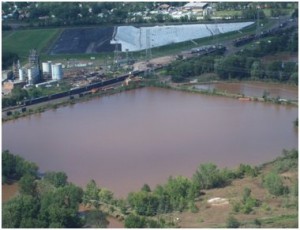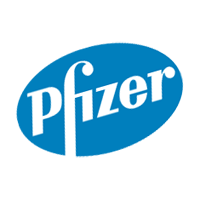NEW JERSEY

The federal government announced today that the Wyeth Holdings LLC, a subsidiary of the Pfizer Corporation, will do nearly $194 million worth of cleanup work at the American Cyanamid Superfund Site in Bridgewater Township, New Jersey.
The cleanup includes work to address six disposal areas at the site, where chemicals were manufactured for nearly 100 years, according to the consent decree.
For nearly a century, prior owners manufactured chemicals at the property, according to authorities.
Officials said a number of impoundments were constructed and used for waste storage and disposal throughout this time period, which eventually contaminated soil and groundwater. The site was placed on the federal Superfund list in 1983 after hazardous chemicals were found in the impoundments, soil and groundwater.
 The soil,groundwater and waste disposal areas are contaminated with volatile and semi-volatile organic compounds and heavy metals. The extent and nature of potential health effects depend on many factors, including the level of contamination to which people are exposed and how long people may be exposed to the contaminants.
The soil,groundwater and waste disposal areas are contaminated with volatile and semi-volatile organic compounds and heavy metals. The extent and nature of potential health effects depend on many factors, including the level of contamination to which people are exposed and how long people may be exposed to the contaminants.
The groundwater underlying the site is highly contaminated with benzene and other contaminants. Many of the site contaminants are known or suspected to cause cancer in people and animals, and benzene can cause cancer in people.
In addition, the company will pay $1 million for Environmental Protection Agency’s past costs of overseeing cleanup work at the site.
“Just as we must act to meet the environmental challenges of the present and the future, we cannot leave unaddressed the toxic legacies of the past like American Cyanamid’s site in Bridgewater Township,” said Assistant Attorney General John C. Cruden for the Justice Department’s Environment and Natural Resources Division. “This agreement will help protect waterways from seeping contaminated groundwater and makes significant progress towards closing waste disposal areas at the site.”
The cleanup work includes addressing contaminated soil, groundwater and six waste disposal areas at the site, officials said.
In addition, authorities said the agreement includes the closure of two waste disposal areas whose contents were previously excavated and sent off-site.
Under the agreement, Wyeth will continue to operate a system for collecting and treating contaminated groundwater underneath the site to prevent it from seeping into the nearby Raritan River, Cuckel’s Brook and Middle Brook.
A study to evaluate alternatives for cleaning up two additional waste disposal areas is ongoing.
“This agreement marks an important milestone in EPA’s work to clean up pollution throughout this complex site,” said Regional Administrator Judith A. Enck for EPA. “This will allow critical work to reduce problems posed by soil and groundwater contamination on parts of the site.”

